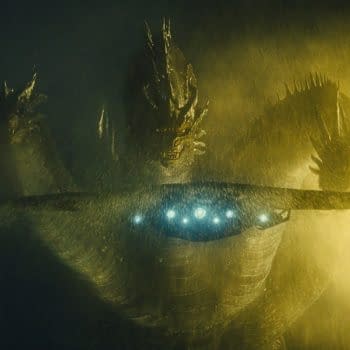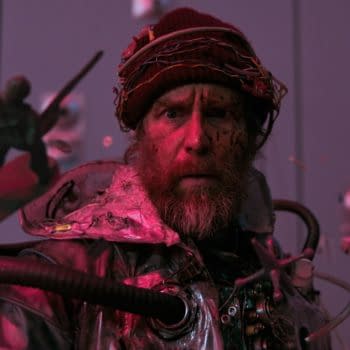Posted in: Bill Watters, Movies, Netflix, Review | Tagged: anthony mackie, film, IO, movie, netflix, Review
Netflix's 'IO': Thoughtful Science Fiction, But Worth Your 2 Hours? [Review]
There's nothing at all wrong with moderate-budget/limited-cast science fiction films that are more thought experiments than robots and explosions. So stepping into Netflix's latest entry IO–with a total cast of three, and a trailer that looks like a variation on the Last Person on Earth theme–there wasn't any particular reason for trepidation.
Unfortunately, it feels like it would have been a wonderful entry as a Black Mirror episode, rather than a full-length feature.
Warning: after the trailer at the end of this review you'll find spoilers about the film's ending. Until then, it's spoiler free (other than what you would learn from watching the trailer).
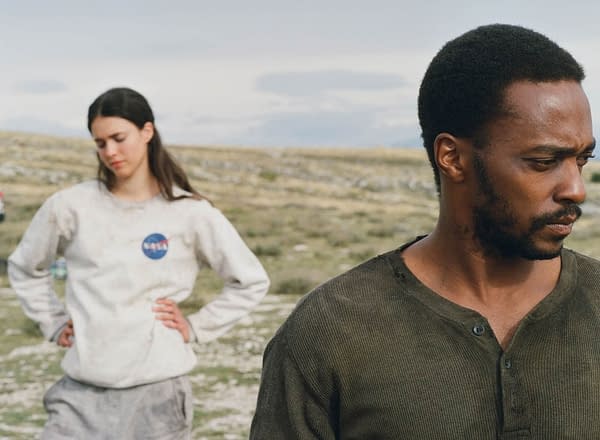
The Earth's atmosphere has turned almost entirely toxic to human life, with only the most limited areas still with small pockets of oxygen. The bulk of the population has either died off or fled in shuttles to a massive outpost orbiting Jupiter's moon, Io. Now, one of only a few people left on the planet is Sam Walden (played by Nice Guys' Margaret Qualley), the daughter of famed planetary scientist, Henry (American Horror Story's Danny Huston). Following in Henry's footsteps, Sam is his research assistant in his laboratory trying to discover if Earth will wind up recovering, adapting, or completely wiping out all life entirely.
Then a stranger appears–Micah (played by Marvel franchise alum, Anthony Mackie), looking for Henry, and revealing that the last shuttle will be leaving off-world in only a few day's time and seeing if Henry and Sam want to leave as well.
There's nothing wrong with the characters, and their respective struggles for discovery and reluctance to finalize the abandonment of the planet. Where the film falters is that it takes a really long time to get where it's going. If it'd been in an hour the overall piece would probably feel fine, but taking 97 minutes winds up leaving the viewer strumming their fingers waiting for the storytelling to catch up with where we've already guessed what the next plot point is going to be.
It's a fine balance between letting a story have time to breathe and it becoming dull. The final resolution also jumps to a punchline that while it makes sense for the characters in question, for a film that tries to keep within scientific feasibility it suddenly abandons its real-world footing into fantasy. If you want me to jump directly into spoilers about the ending, you'll find it after the trailer embedded below.
If you want something to watch and you liked films like Moon and Man from Earth (both spectacular in my book), you might go ahead and jump in and give IO a try, but the payoff won't be worth the slog for most viewers.
Spoilers to follow the next image:
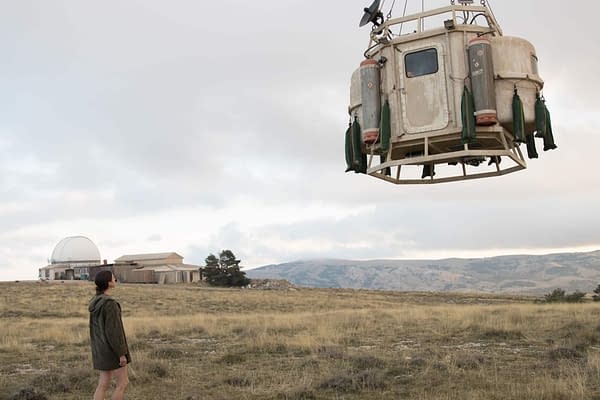
The film's end solution was that Sam herself had already been adapted to be able to survive in the more toxic atmosphere to be found on most of Earth. She doesn't realize this until the very end of the film, and while Micah has to flee the planet, in their last night together, she became pregnant and the last scene is her and her son on a beach. While this is supposed to leave us with a hopeful look towards the future it misses the point that this means there's two–count 'em–two people on the planet that can survive. Skipping the implicit problem if they're going to begin repopulation efforts that means you're dealing with a mother/son as the source of the new genetic material. To have a viable genetic diversity population you should have at least 4,000 individuals.
So while Sam and her son may live on, it was already established that the animals, including those in the oceans, have all died off. There needs to be a more exotic solution because now there are two stranded humans on a still-dead planet. Again, that's a good ending for a Black Mirror, not for a last coda of what feels like was intended to be a hopeful ending.
IO is currently streaming on Netflix.



![Netflix's 'IO': Thoughtful Science Fiction, But Worth Your 2 Hours? [Review]](https://mlpnk72yciwc.i.optimole.com/cqhiHLc.IIZS~2ef73/w:600/h:338/q:75/https://bleedingcool.com/wp-content/uploads/2018/06/spoiler.alert_.jpg)


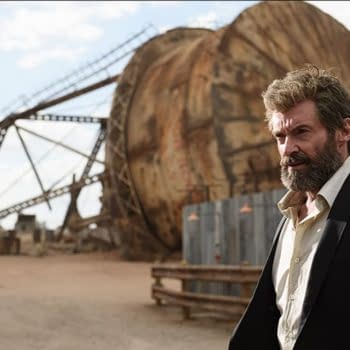

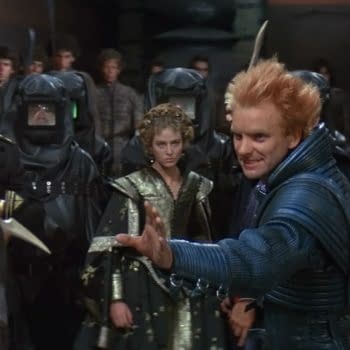
!['Rocketman' Soars With Warts and All Elton John Story [Review]](https://mlpnk72yciwc.i.optimole.com/cqhiHLc.IIZS~2ef73/w:350/h:350/q:75/rt:fill/g:ce/https://bleedingcool.com/wp-content/uploads/2019/01/rocketman.3-350x350.jpg)
